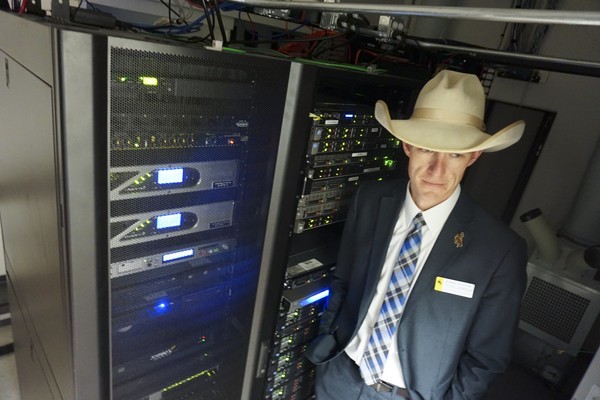
Elsewhere on these pages, MetroHealth CEO Akram Boutros writes about the need to endow in a younger, more enterprising generation of civic-minded Greater Clevelanders the economic leadership required to shake this region out of its doldrums. We agree. Too many other of our peer cities, from Pittsburgh to Columbus, are innovating in leadership and programs — with the results to show for it in population growth and dynamism.
We’ll have more to say on the idea of a regional summit to explore this opportunity and challenge.
But one of those potential new leaders, Bernie Moreno, has stepped forward recently to offer a way immediately to take a deep dive into a cool new idea — blockchain, with its implications for heightened business agility, cheaper “smart” contracts and, potentially, explosive growth.
Car dealer Bernie Moreno has a big idea to transform Cleveland into U.S. blockchain leader
What kind of boost could it give Greater Cleveland if it became “Blockland,” a center of innovation in blockchain design, application, problem-solving and the sophisticated cryptography that underlies this system, which is somewhat analogous to Google docs on steroids? The system links people, ideas, contracts and information through elaborately protected “blocks,” and each new block has its own hard-to-break “hash” function underpinned by high-end cryptography.
The best-known use for blockchain has been Bitcoin trading and its underlying web of transactions. But, as Moreno points out, potential regular-economy applications are enormous, from banking to health care. That’s why IBM is on board, among others, and why some states (and at least one foreign country, Georgia) are pushing aspects of blockchain for their economic benefits and enhanced security (for mobile voting platforms, for instance), according to a useful primer by cleveland.com’s Emily Bamforth and Andrew J. Tobias.
Moreno, with the instincts of an entrepreneur and the zeal of a Cleveland transplant who thirsts for a more dynamic metro area, doesn’t want “Blockland” to await the usual study committees and blue-ribbon reports.
He wants action. And he’s right about that. Let’s have the conversation, and let’s be venturous, not tentative. How quickly can we ramp up relevant curriculum at Case Western Reserve and Cleveland State universities? How readily will health care giants Cleveland Clinic and University Hospitals Case Medical Center climb aboard? Does the Cleveland Foundation stand ready to goose applications in the nonprofit sphere? Could Progressive Insurance and KeyBank become industry leaders in potential applications in their industries? Are there synergies in systems-building that Cleveland could create with a regional approach and appropriate political leadership?
Even if Blockland proves not to be Cleveland’s future, it’s worth making the connections and exploring its possibilities. A collective endeavor with urgency of this kind can help get Cleveland thinking about how best to put the region back in the national spotlight as a center for technological innovation and daring, as it was in the heyday of manufacturing a century ago. Let’s explore it, Cleveland. It’s worth the effort.
